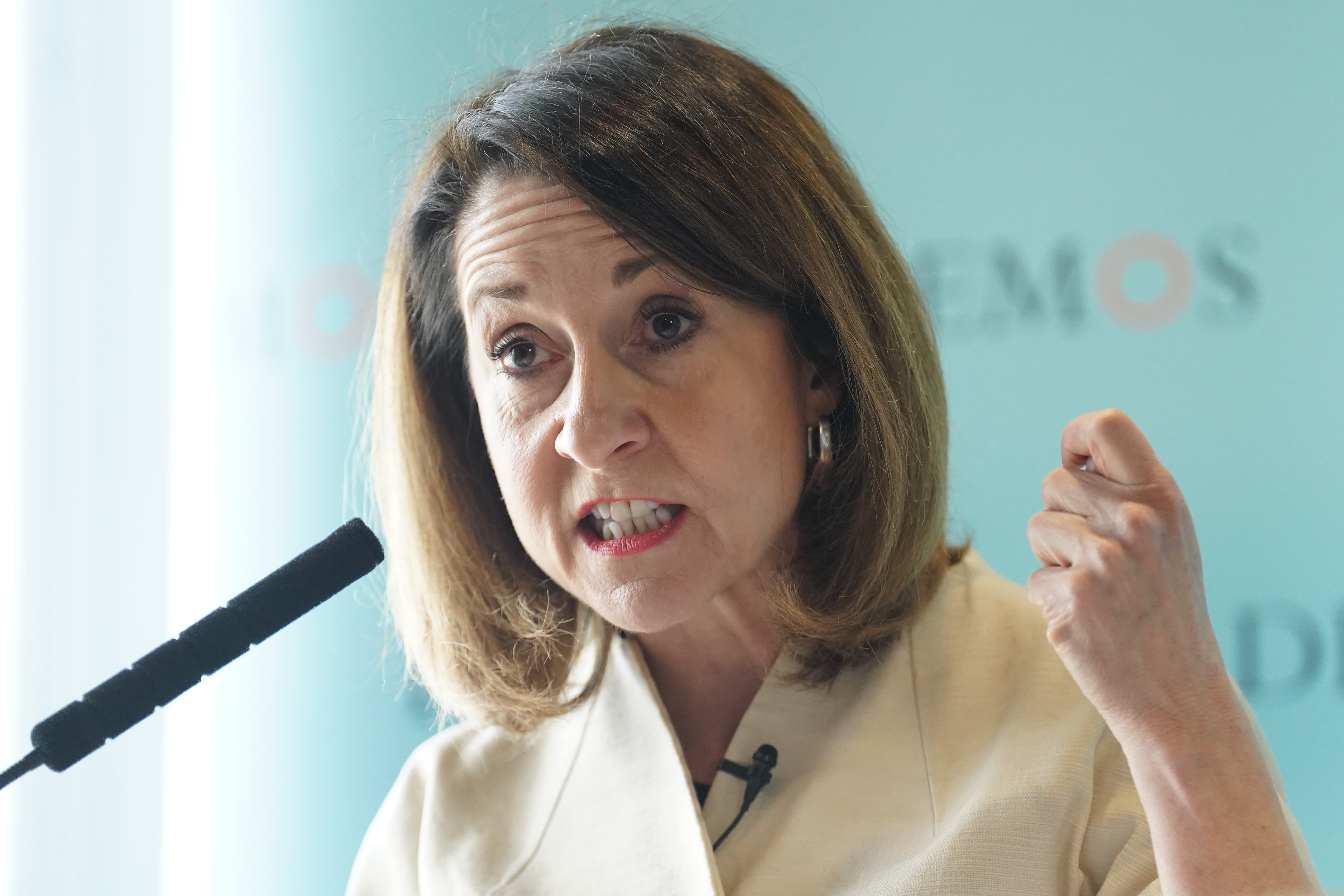Labour promises crackdown on benefits payments to inactive young people
Shadow work and pensions secretary Liz Kendall did not specify what form the tougher measures on universal credit would take.

Your support helps us to tell the story
From reproductive rights to climate change to Big Tech, The Independent is on the ground when the story is developing. Whether it's investigating the financials of Elon Musk's pro-Trump PAC or producing our latest documentary, 'The A Word', which shines a light on the American women fighting for reproductive rights, we know how important it is to parse out the facts from the messaging.
At such a critical moment in US history, we need reporters on the ground. Your donation allows us to keep sending journalists to speak to both sides of the story.
The Independent is trusted by Americans across the entire political spectrum. And unlike many other quality news outlets, we choose not to lock Americans out of our reporting and analysis with paywalls. We believe quality journalism should be available to everyone, paid for by those who can afford it.
Your support makes all the difference.Labour has promised tougher measures on handing out benefits payments as it sets out plans to reduce the number of young people out of work, education or training.
Shadow work and pensions secretary Liz Kendall said the party would recruit 8,500 more mental health workers and reform the Government’s “failed” apprenticeship levy to solve inactivity.
But Ms Kendall did not specify what form the tougher measures on universal credit would take.
She added Labour would give young people “chances and choices” as they were “chomping at the bit” to take up new opportunities.
Labour’s plan focuses on recruiting thousands of mental health professionals and career advisers to encourage young people to work, which it would fund by targeting tax breaks for private schools and closing tax loopholes used by some private equity fund managers.
New figures revealed almost 851,000 people aged 16-24 are not in education, employment or training (Neet), an increase of 20,000 in a year and the highest level since 2016.
Ms Kendall was promoted to shadow work and pensions secretary in a Labour cabinet reshuffle last September.
In a speech to the Demos think tank in central London on Monday, she said: “This is our commitment to young people – we value you, you are important.
“We will invest in you and help you build a better future, with all the chances and choices this brings.
“But in return for these new opportunities, you will have a responsibility to take up the work or training that’s on offer.
“Under our changed Labour Party, if you can work there will be no option of a life on benefits, not just because the British people believe rights should go hand in hand with responsibilities, but because being unemployed or lacking basic qualifications when you’re young can harm your job prospects and wages for the rest of your life.
“This isn’t good enough for young people or for our country.”
Ms Kendall pledged to recruit 1,000 new career advisers in schools and the creation of new employment advisers in Labour’s Young Future hubs, which have been billed to provide tailored specialist support.
She said Labour would create specialist mental health support in every school to intervene at earlier ages with young people, and said she wanted to see job centres working in partnership with the NHS.
Ms Kendall said: “Under Labour, the Department of Work and Pensions and Job Centres will do what they say on the tin.
“We will have a relentless focus on helping more people get work and get on at work, and on making workplaces healthier and more productive places to be.”
The party plans to expand the provision of specialist mental health support for young people by recruiting 8,500 more mental health professionals.
Ms Kendall accused the Tories of having “failed on the economy – and that’s because they have failed on work”.
Labour plans to overhaul the Tories’ apprentice levy with new technical excellence colleges and a growth and skills levy for those who did not achieve the required qualifications at school
The party will also pledge to improve access to work for young disabled people by ensuring they know what equipment, adaptations or personal support they will get before they start work so they feel more confident.
Some 281,500 people aged 18-24 are claiming unemployment related benefits, which is 14,800 more than a year ago, according to ONS figures.